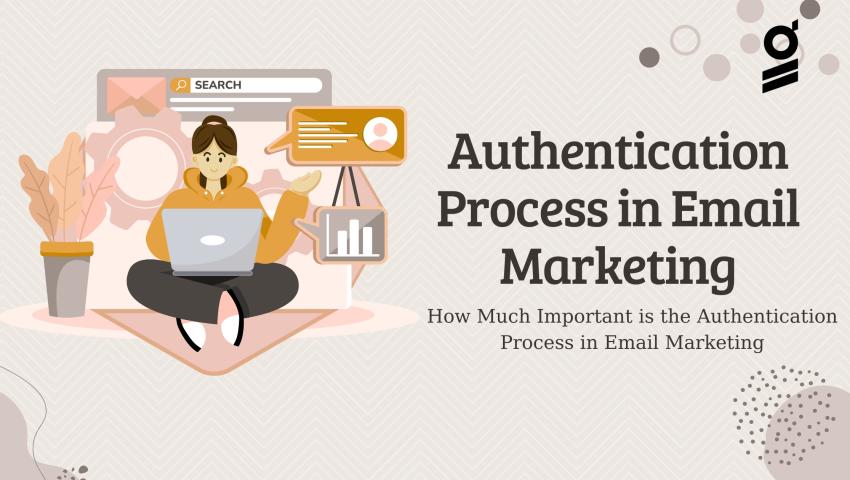
How Much Important is the Authentication Process in Email Marketing
Email authentication is not a technical need but an important part of a marketing campaign. If you are maintaining protocols such as DMARC, DKIM, SPF, businesses can improve deliverability, build trust with recipients and maintain trust and reputation with recipients and promise compliance with regulatory standards.
Email marketing has emerged radically for years, and is a crucial tool for businesses so they can effectively interact with customers. Due to the advent of email marketing, you are encountered with the challenge of maintaining deliverability and trust. Authentication is one of the important aspects that play a role in email marketing campaigns.
Email Authentication
Authentication is a collection of techniques and protocols used to check the identity of the sender and promise the integrity of email messages. It includes several key aspects:
DKIM: It means Domainkeys Identified Mail. It consists of the feature of digital signature to the email. It verifies that the content of the email is not duplicated during transmissions.
SPF: Sender Policy Framework: This framework allows the domain owners to specify which IP addresses are allowed to deliver emails. It avoids spoofing and makes sure that emails are sent from authentic sources.
Domain Message authentication, Reporting and Conformance: DMARC is based on SPF and DKIM by mentioning a policy framework for domain owners to mention the way the email should be managed if they do not pass authentication verification. It helps in preventing problems such as phishing and spoofing.
Significance of authentication in email marketing
For many reasons, authentication is essential to impact the effectiveness and goodwill of email marketing campaigns.
Prevention of spoofing and phishing
It consists of protocols such as DKIM, SPF and DMARC to prevent hackers from spoofing your mail and delivering illegal emails. Hence it protects your goodwill and phishing attacks.
Enhanced deliverability
Internet service providers and email service providers are continuously using authentication checks to refine incoming emails. Emails that re considered authentic are usually placed in their inbox folder than spam
Building trust with recipients
When the users see the messages in their inbox, they usually trust the sender and also engage the content. For nurturing relationships and building conversations, trust is an important factor in email marketing efforts.
Compliance with email standards
Regulatory frameworks such as CAN SPAM Act focus on the significance of email authentication to ensure privacy and security for email recipients. To prevent repercussions to maintain the best email practices, compliance with the standards is necessary.
Improves email metrics
Unauthorized emails have higher open rates and click rates also as they are identified by legitimate email providers. Hence they can cause improved performance in campaigning and ROI for business.
Best practices for implementing email authentication
Educating your team
Your IT and marketing team should comprehend the significance of email marketing and implement the best practices for monitoring and configuring authentication protocols.
Implement DMARC, SPF and DKIM
You should configure SPF records to mention authentic mil servers, establish DKIM signatures for outgoing emails. You should establish DMARC policies for monitoring and implementing practices.
Staying updated
You should always be informed about the changes and updates for email authentication and best practices to adjust to the strategies accordingly.
Surveying authentication reports
The DMARC reports should be reviewed regularly to detect authentication flaws or if someone is using emails in an unauthorized way. For refining authorization policies and maintaining goodwill, you should use the insights.
Final thought
Email authentication is not a technical need but an important part of a marketing campaign. If you are maintaining protocols such as DMARC, DKIM, SPF, businesses can improve deliverability, build trust with recipients and maintain trust and reputation with recipients and promise compliance with regulatory standards. To improve the effectiveness of your email campaign, you should invest in healthy email marketing practices.
